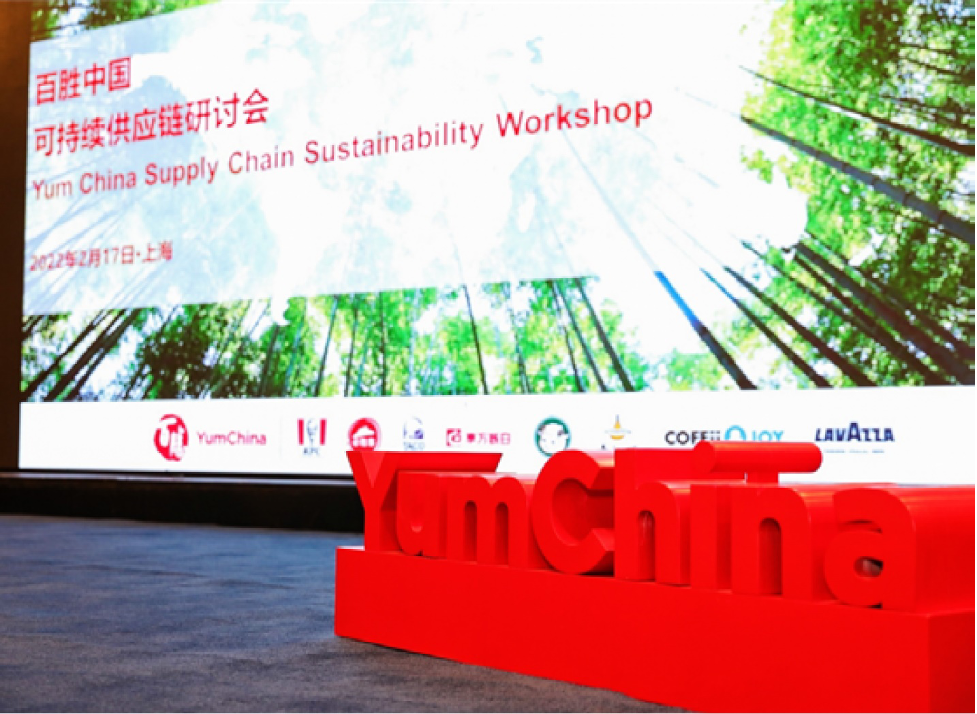Yum China Engages Suppliers to Promote a Green and Sustainable Supply Chain Ecosystem

Supply chain decarbonization is critical to achieving Yum China’s stated net zero ambitions, including reaching net zero value chain emissions by 2050. This is particularly important for Yum China as over two-thirds of its value chain GHG emissions come from purchased goods. Yum China’s supply chain is complexly structured with a wide range of categories and its suppliers have different levels of readiness for transitioning to low-carbon operations. Therefore, it is of vital importance for Yum China to develop a supplier engagement and empowerment program to drive carbon reduction across the supply chain. In 2021, Yum China started to include suppliers' energy-saving and GHG emissions reduction efforts into its checklist for supplier CSR audits. Today, Yum China encourages suppliers to develop energy management systems, track and monitor energy and resource consumption, and deploy energy-efficient facilities and technologies to reduce operational GHG emissions.
While developing a Scope 3 GHG emissions inventory of suppliers for the first time, Yum China offered training sessions for suppliers to enhance their knowledge and know-how on climate action, and to develop the capability to map out their own value chain GHG emissions. In February 2022, Yum China held the first-ever Yum China Supply Chain Sustainability Workshop. Yum China brought together the leadership teams of its top 50 key suppliers in the food and packaging category, and external consultants were invited to interpret environmental policies and relevant market trends. Yum China shared its experience and the latest progress on climate action, especially SBT (Scienced-Based Target) setting. Top-performing suppliers in each product category were also invited to present their best practices in carbon emissions reduction.
Yum China believes knowledge sharing can strengthen climate change adaptation and stimulate innovation in facing climate change. All the participating suppliers at the workshop committed to pursuing Yum China’s target goal of reaching net zero value chain emissions by 2050. Additionally, following the event, selected suppliers from the poultry and packaging categories joined a pilot program to develop a carbon footprint scorecard and category management playbook over the next several years. In the future, Yum China plans to expand the program to many other categories to help achieve a green and sustainable supply chain ecosystem.
To learn more about Yum China’s commitment to sustainability and progress towards its sustainability goals download Yum China’s 2021 Sustainability report here

